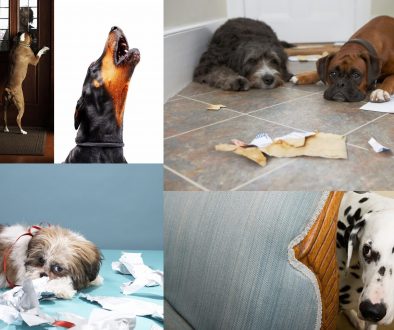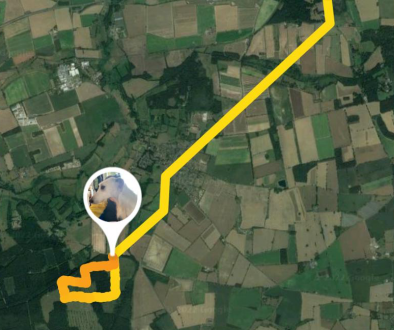Separation Distress

Much has been written over the years about dogs and separation problems. Separation anxiety is the normal term applied to such problems.
I tend to agree with John Bradshaw, a biologist based at the University of Bristol, who has studied the behaviour of domestic dogs and their owners for over 25 years when he suggests a better (alternative) description as being ‘separation distress’ (Bradshaw, 2012). Bradshaw, along with other researchers in the field of canine behaviour such as Emily Blackwell (Lecturer in Animal Behaviour and Welfare at Bristol University) suggest that, upward, of 20% of domestic dogs may suffer from separation distress.
The underlying causes of separation distress can be, loosely, divided into two main areas: separation from the owner (over-attachment) and anxiety caused by phobias such as loud noises that, when the dog is alone, sends them in a panicked state.
Of course, the results of this distress are well understood. Owners return home to find a picture of destruction with, frequently, the dog urinating or defecating in the house.
I once rescued a beautiful three-year-old Dalmatian called Tess. We were, in fact, her fourth home. This was before, I retrained as a behaviourist. Tess was a beautiful dog but a complete basket case. She suffered from extreme separation distress. We already had an older rescue dog who seemed to have no calming effect on Tess’s stress at all. If she was left, we returned home to destruction; the kitchen floor was ripped up, carpets lifted, books and CDs destroyed, etc. We took advice from a canine behaviourist, but it took around 8 months to successfully help Tess with her anxiety.
Bradshaw suggests, and I am inclined to agree, that this behaviour is not ‘abnormal’ but is a natural behaviour. It is not surprising that our dogs, who have become highly dependent on their human so that they are obedient and useful suffer when away from us.
The question is, are these behaviours preventable? The short answer is yes. Although if it has gone on for some time it can prove difficult, but not impossible, to overcome. Unfortunately, this type of behaviour is one seen regularly by behaviourists, indeed, many rescued dos may suffer in this way and they are returned to the rescue centres because of it.
Although this type of problem requires professional help, I can offer some brief guidance. Over-attached dogs will observe their owners very carefully and watch for signs that their owner may be about to leave them alone. They will then ramp up their levels of distress in anticipation of the horror of you leaving without them. For instance, you pick up your keys, put your coat on and pick up your bag; these will all be cues to your dog. So what do we do? We link our actions to something that is positive and a good outcome for our dog.
So, pick up the keys, praise and reward your dog. Put your coat on, praise and reward your dog. Go outside, close the door. Come straight back in and praise and reward your dog. Go outside again, wait a minute or two, go back in and praise and reward your dog. You get the picture. Remember, do not praise or reward if any signs of anxiety are shown by the dog. We are teaching our dog that the cues and actions that normally stresses him are now signs of a positive outcome. Therefore, with some work, the fact you go out without him will not result in anxiety. You might, even, get ready to go out and then, simply, make a cup of tea, sit down and not go out until after your tea, for instance. There are quite a few strategies that can help, too many to cover here.
Of course, you can improve the situation for your dog even further. Leave the radio on (talking is best), leave a treat-filled kong, leave a piece of clothing with your scent on it. All of these things help to occupy and relax your dog while you are away. If you are able, you should increase the amount of time you are away, gradually. Your dog should become calmer while you are away. Never, scold or punish the dog if he has done something you rather he hadn’t when you get home: that will undo any good work or progress you have made.
If progress is slow or you are struggling, seek the help of a qualified behaviourist.
Reference:
Bradshaw, John (2012), In Defence Of Dogs – Why Dogs Need Our Understanding.



